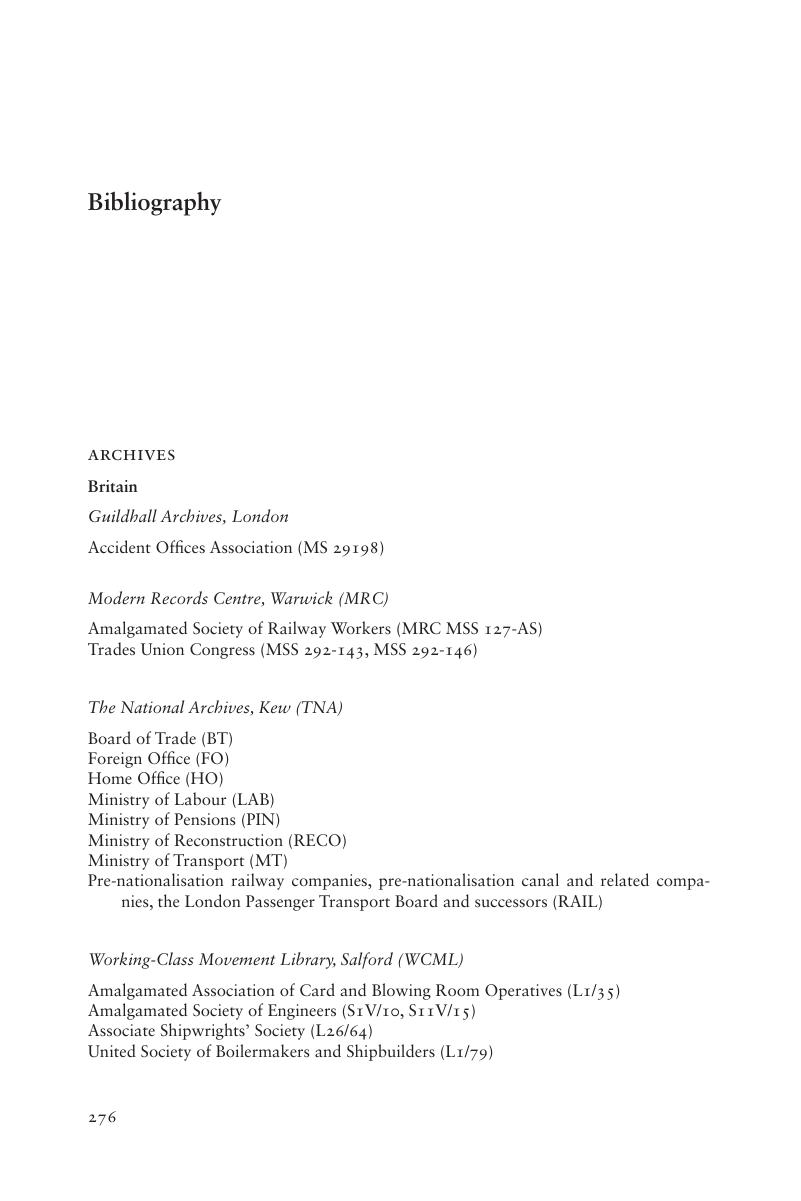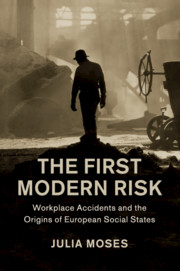Book contents
- The First Modern Risk
- Studies in Legal History
- The First Modern Risk
- Copyright page
- Dedication
- Contents
- Figures
- Tables
- Acknowledgements
- Abbreviations
- Introduction
- 1 Accidents, Freedom and Modernity in the Nineteenth Century
- 2 Occupational Risk, Work and the Nation State
- 3 Spreading Risk, Forging Solidarity
- 4 Taking Risks and Dismissing Fate
- 5 Workers, Citizens and the State
- 6 Risk Societies as ‘People’s Communities’
- Conclusion
- Appendix
- Bibliography
- Index
- References
Bibliography
Published online by Cambridge University Press: 14 June 2018
- The First Modern Risk
- Studies in Legal History
- The First Modern Risk
- Copyright page
- Dedication
- Contents
- Figures
- Tables
- Acknowledgements
- Abbreviations
- Introduction
- 1 Accidents, Freedom and Modernity in the Nineteenth Century
- 2 Occupational Risk, Work and the Nation State
- 3 Spreading Risk, Forging Solidarity
- 4 Taking Risks and Dismissing Fate
- 5 Workers, Citizens and the State
- 6 Risk Societies as ‘People’s Communities’
- Conclusion
- Appendix
- Bibliography
- Index
- References
Summary

- Type
- Chapter
- Information
- The First Modern RiskWorkplace Accidents and the Origins of European Social States, pp. 276 - 310Publisher: Cambridge University PressPrint publication year: 2018



